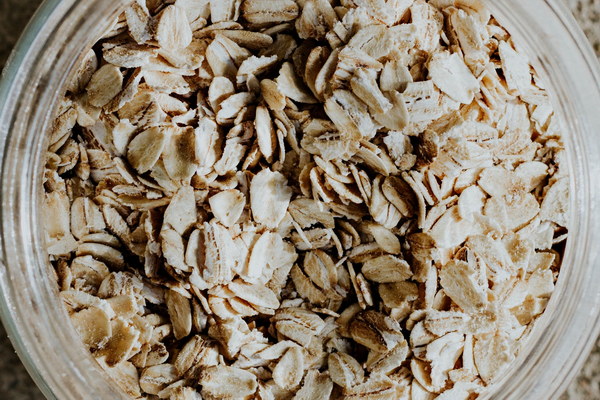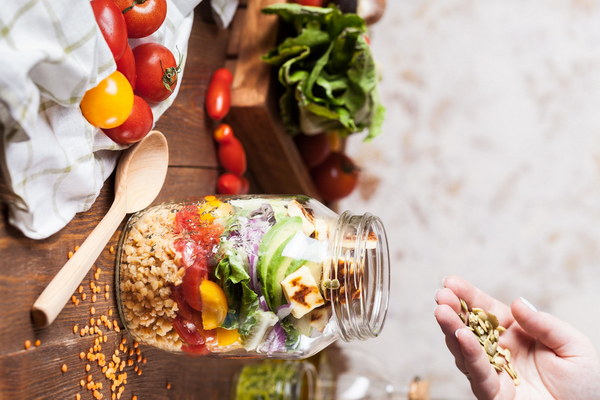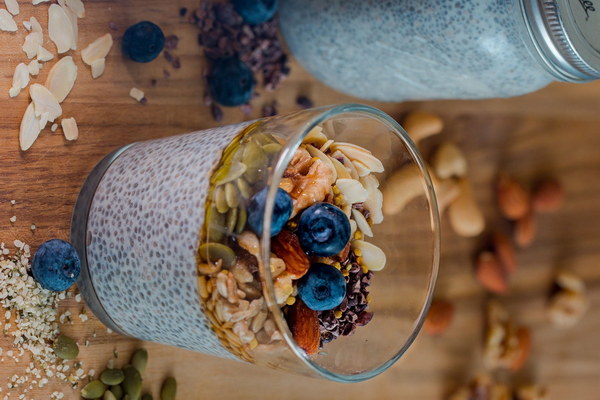Rebuilding Your Stomach and Spleen Health After Illness A Comprehensive Guide
Introduction:
Illness can take a toll on our bodies, and one of the most common consequences is a weakened stomach and spleen. These vital organs play a crucial role in digestion, nutrient absorption, and overall health. After overcoming an illness, it's essential to focus on rebuilding and strengthening your stomach and spleen to prevent future health issues. This article provides a comprehensive guide on how to nurture your stomach and spleen health after illness.
1. Adopt a Balanced Diet:

A balanced diet is the cornerstone of rebuilding your stomach and spleen health. Incorporate the following nutrients into your meals:
- Lean proteins: Chicken, turkey, tofu, and fish are excellent sources of lean proteins that support the repair of tissues and enhance the immune system.
- Whole grains: Foods like brown rice, quinoa, and oats provide essential nutrients and fiber, promoting healthy digestion.
- Fresh fruits and vegetables: Rich in vitamins, minerals, and antioxidants, these foods support overall health and aid in digestion.
- Fermented foods: Yogurt, kefir, sauerkraut, and kimchi are probiotic-rich foods that help restore the gut microbiome and improve digestion.
2. Eat Small, Frequent Meals:
Eating small, frequent meals can help prevent overloading your stomach and spleen, reducing the risk of indigestion and bloating. Aim for five to six small meals a day, spaced evenly throughout the day.
3. Avoid Harmful Foods:
Certain foods can exacerbate stomach and spleen issues. Limit or avoid the following:
- Highly processed foods: These foods lack nutritional value and can disrupt digestion.
- Spicy and greasy foods: These can irritate the stomach lining and hinder digestion.
- Caffeinated beverages: Caffeine can stimulate the stomach and spleen, leading to discomfort and bloating.
4. Stay Hydrated:
Proper hydration is essential for maintaining healthy stomach and spleen function. Drink plenty of water throughout the day, and avoid sugary drinks and alcohol, which can irritate the stomach lining.
5. Manage Stress:
Stress can negatively impact stomach and spleen health by reducing blood flow to these organs. Practice stress-relieving techniques such as meditation, deep breathing exercises, and yoga to promote relaxation and improve overall health.
6. Engage in Gentle Exercise:
Gentle exercise, such as walking, swimming, or tai chi, can help improve digestion, reduce bloating, and boost circulation. Start with low-intensity exercises and gradually increase the intensity as your health improves.
7. Consider Herbs and Supplements:
Some herbs and supplements can support stomach and spleen health. Consult with a healthcare professional before taking any new supplements, and consider the following:
- Ginger: Known for its anti-inflammatory and digestive properties, ginger can help alleviate stomach pain and bloating.
- Licorice root: This herb has been used in traditional Chinese medicine to support stomach and spleen health.
- Probiotics: Probiotic supplements or foods can help restore the gut microbiome and improve digestion.
Conclusion:
Rebuilding your stomach and spleen health after illness requires a comprehensive approach that includes a balanced diet, proper hydration, stress management, and gentle exercise. By incorporating these strategies into your daily routine, you can strengthen your stomach and spleen, promoting overall health and well-being. Remember to consult with a healthcare professional before making any significant changes to your diet or lifestyle.









